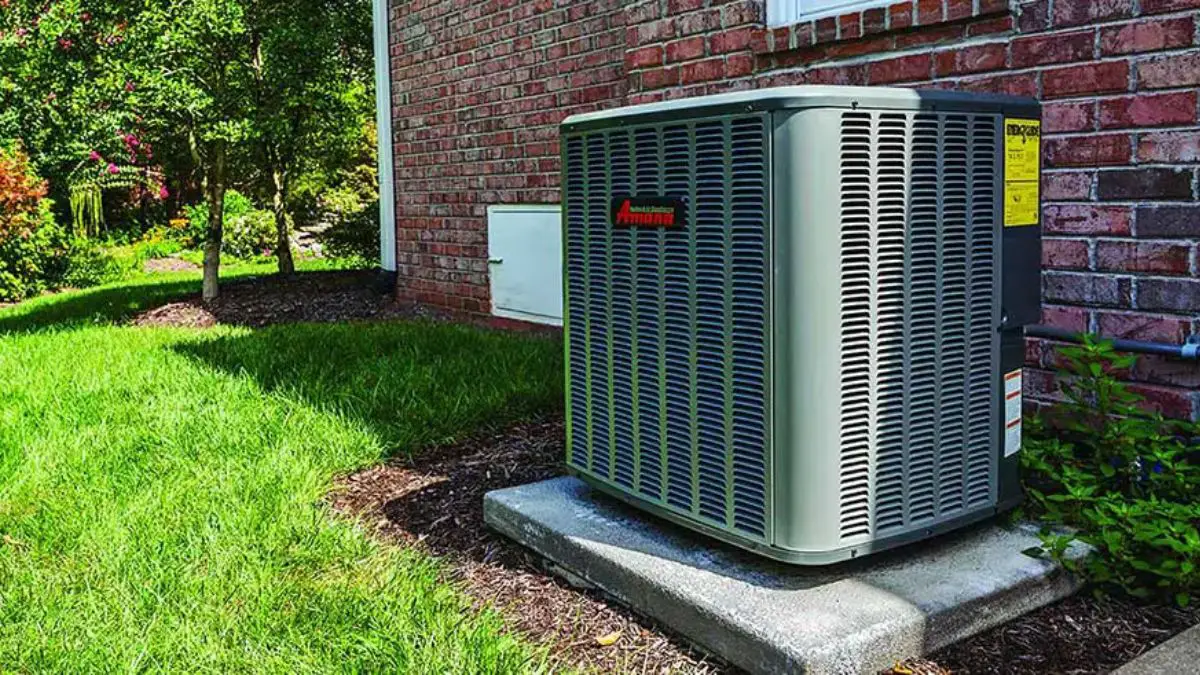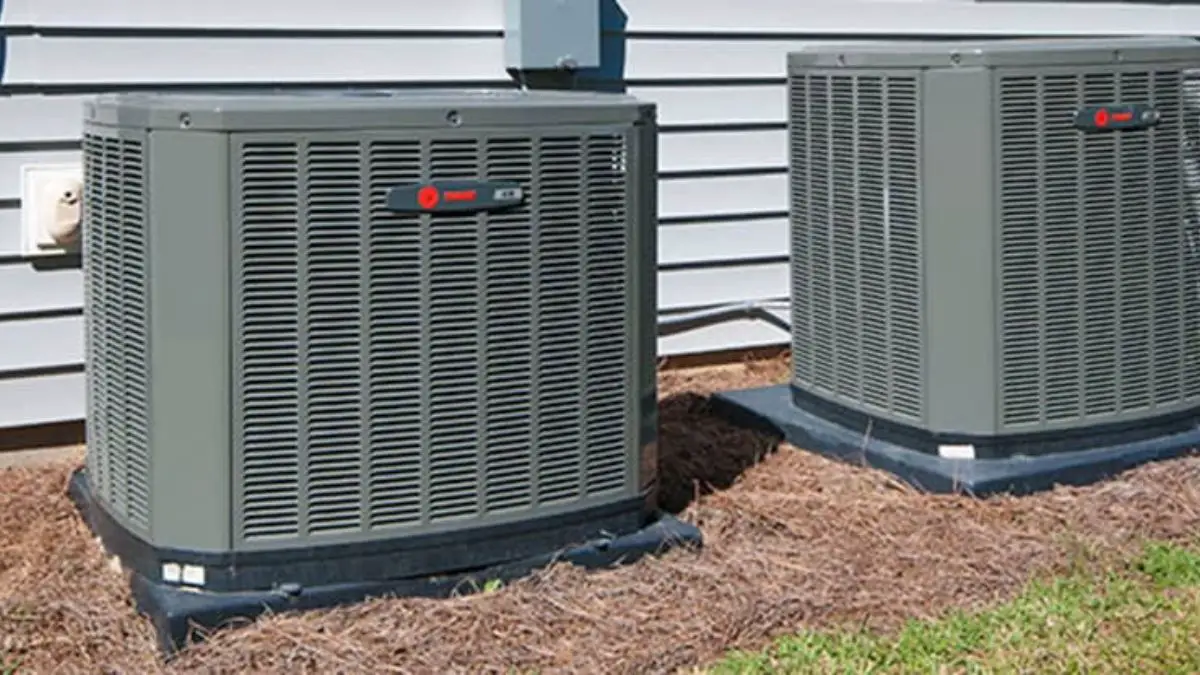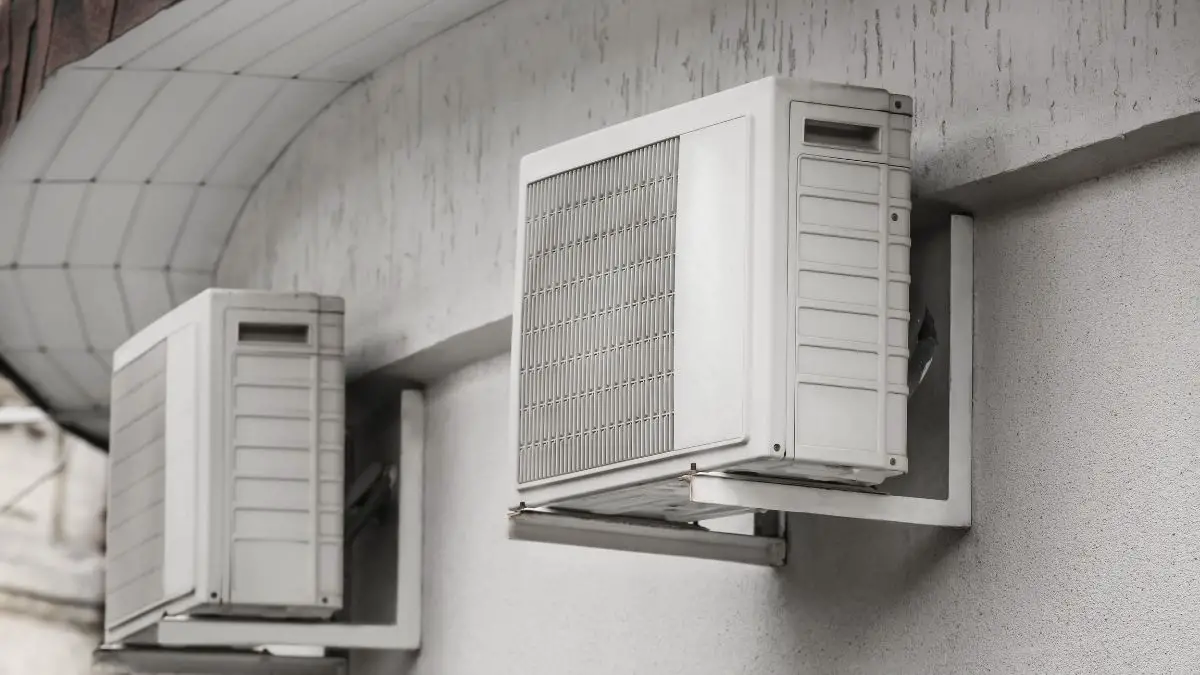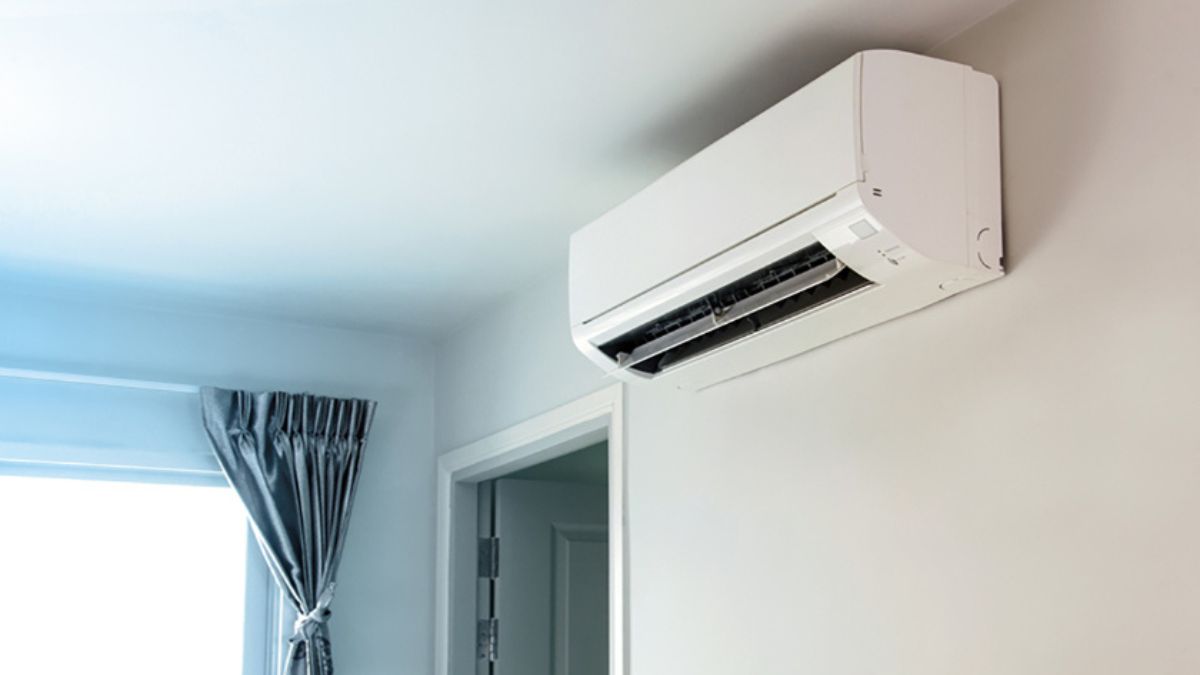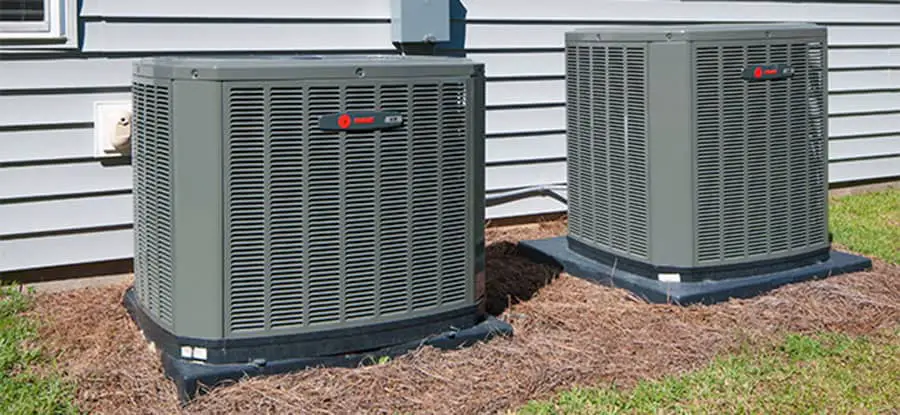
I’ve been learning about the differences between heap pumps and geothermal systems and how I can decide which one is best for my home. I did some research and put together this article to explain what I found.
So, how do you decide between a heat pump or a geothermal system? The primary considerations are the cost to run them and the cost of installation. Both heat pumps and geothermal systems cost on average the same amount. A geothermal system is 25% to 50% cheaper to run than an air heat pump.
Exactly how much a geothermal system will save you, in the long run, is around $10,000, which is quite a lot, so below, I’ll break down everything you need to know about the costs involved in getting a heat pump versus a geothermal system.
There are also some minor instances where getting a heat pump can make more sense, which I’ll explain below.
Are Geothermal Heat Pumps Worth It?
A geothermal heat pump is worth it over the long run. Here’s a quick table that summarizes the key differences between a geothermal system and a heat pump.
| System | Life before it needs replacing | Electricity usage | Upfront cost |
|---|---|---|---|
| Geothermal system | 25 years to 50 years | 25% to 50% less than a HVAC | $3,592 – $15,578 |
| Heat pump/HVAC | 15 years | 25 to 50% more than a geothermal system | $3,875 – $10,000 |
A geothermal system and a heat pump system have a somewhat similar price. According to Modernize.com, the average cost for a heat pump is between $3,875 and $10,000.
And according to Homeadviser.com, the average price for a geothermal heat pump is between $3,592 and $15,578.
But, a geothermal system lasts almost twice as long as a heat pump. Energy.gov has stated that a geothermal system lasts around 25 years. And a heat pump lasts for about 15 years, according to a range of sources, such as here and here.
Also, a geothermal heat pump uses 25% to 50% less electricity than a heat pump. So, you’ll spend 25% to 50% less on electricity month on month.
I previously researched how the SEER rating of a heat pump affects how much electricity it uses in this article. As part of my research, I found that a 50% reduction in energy consumption over a whole year is roughly equal to $600 a year.
Using that math, each year, a geothermal system will save you between $300 and $600. Although these are good savings each year, you’ll also get a considerable saving after 15 years, when it comes time to replace a heat pump.
Based on all of this information, I did a side by side comparison of how the cost savings will add up over the life of your heat pump .
| Year | Heat pump cost | Geothermal system cost | Energy saving | Net saving (average) |
|---|---|---|---|---|
| 1 | $3,875 – $10,000 | $3,592 to $15,578 | $300 to $600 | $450 |
| 2 | – | – | $300 to $600 | $900 |
| 3 | – | – | $300 to $600 | $1350 |
| 4 | – | – | $300 to $600 | $1800 |
| 5 | – | – | $300 to $600 | $2250 |
| 6 | – | – | $300 to $600 | $2700 |
| 7 | – | – | $300 to $600 | $3150 |
As you can see, the cost-saving adds up, and at around year 15, you save a lot because you’ll need to replace your heat pump, which costs an additional $3,875 to $10,000.
By, this time the energy savings from using a geothermal system will have added up to $6700.
Interestingly, even if your geothermal system didn’t last as long as a heat pump, you could buy a new one for free based on the money you save in electricity costs.
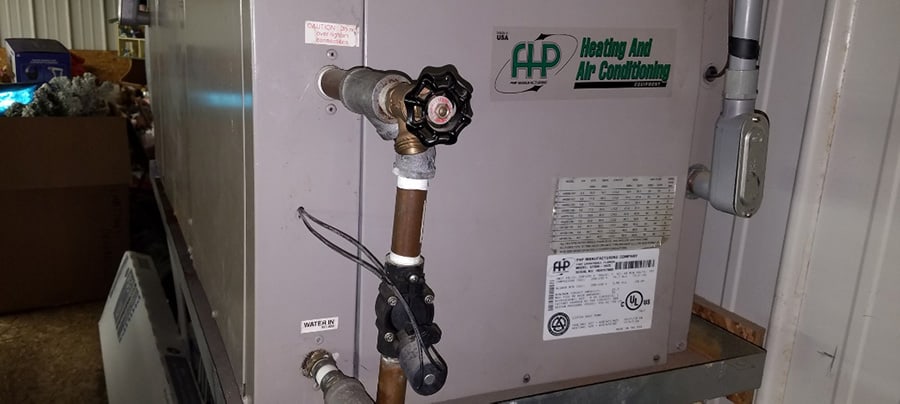
Where Can You Get a Geothermal Heat Pump?
According to Energy.gov, a geothermal heat pump can be used almost anywhere in the US. You’ll need to get in touch with a geothermal heat pump consultant or a company that installs them so they can assess the specific area where you live to see if it will work.
Not all HVAC contractors offer geothermal heat pump installations as the initial setup can be daunting.
Differences Between Heat Pumps & Geothermal Heat Pumps
A heat pump heats and cools the air using heat transfer from the outside air. A geothermal heat pump uses water pumped from the ground to transfer heat to or from the air. A geothermal heat pump is called an earth-coupled, water-source, GeoExchange, or ground source heat pump. One popular brand of geothermal heat pumps is Florida Heat Pumps.
How Do Geothermal Heat Pumps Work?
They work by using the ground as the source of the heat exchange. By comparison, an HVAC system or heat pump uses the air as the heat exchange source.
Here’s a cool video from the US Department of Energy that gives a good background on how a geothermal heat pump works:
As you may be aware, the air temperature differs a lot based on the season. In contrast, the ground temperature is almost constant because it’s insulated from the air, sun, rain, and snow.
It’s a similar concept to a natural cave. When it’s really hot out, the inside of the cave is cooler than being outside. And when it’s rainy, cold, or snowing, the cave is warmer than being outside.
Air hoses are installed underground, and there is a pump on the side of your house or office. The pump circulates the air in the house down into the ground, where it is heated or cooled. Then it’s pumped back into the house.
By comparison, an air-source heat pump system sits outside of your home or office, with an inbuilt heater and refrigeration system.
Indoor air passes across a series of internal coils, where heat is added or removed using a refrigerant to heat and cool the air and then pumped into the house.
As you can see, when the air temperature outside is hot, the heat pump needs to work harder to cool the air.
And when the air outside is cold, it needs to work harder to heat the air. In comparison, a geothermal heat pump is unaffected by the outside air temperature.
There are 6 major types of geothermal heat pumps, which are:
- Closed loop
- Horizontal
- Vertical
- Pond/lake
- Open-loop
- Hybrid
The different kinds have been invented for the different space requirements and the different landforms that occur.
One type of geothermal system will be superior to the other depending on how much usable space there is underground around your home and the presence of landforms like ponds or lakes.
A brief overview of the different systems is shown in this article by Energy.gov. Deciding on which geothermal system is best for your requirements and your specific home or office is easiest to do by consulting with a geothermal heat pump specialist.
Ground Source vs. Air Source Heat Pumps?
A ground source heat pump is better. Both are very effective at heating and cooling your home. However, a ground source heat pump is more energy-efficient and lasts longer than an air source heat pump or HVAC system.
On average, a ground source heat pump uses 50% less electricity. And it lasts twice as long as an air source heat pump before it needs replacing. But, there are some instances where it makes sense to get an air source heat pump.
These are when:
- You want something installed quickly
- The space you need to heat or cool is small
- Your property is unsuitable
1. You Want Something Installed Quickly
A geothermal heat pump takes longer to install because you need to dig in the ground, add the tubes, and bury it again, on top of the time it takes to install the unit.
Whereas, with a heat pump, you only need to install the unit.
Some ducts need to be installed in the walls of your home or office. These ducts are the same whether you’re getting a heat pump or a geothermal system.
According to EnergySmart Alternatives, It can take several weeks (around 6 to 8 weeks) to install a new geothermal system.
They break down the average time it costs into the following timeframes:
| Step in the installation | Time it takes |
|---|---|
| Permitting and Design | 2 to 3 weeks |
| Drilling | 3 to 5 days |
| Trenching between boring and hose | 1 to 2 days |
| Piping connections | 2 to 5 days |
| Duct modification or installation | 1 to 2 weeks |
| Electrical connections | 2 to 3 days |
| Thermostat Set-up, zoning control, and start up | 1 day |
Compared to an HVAC or heat pump system, which takes on average 2 to 3 days to completely install, in the opinion of ASM Air.
Therefore, a heat pump takes a lot less time and can be a crucial consideration if you’re doing a big commercial build or have a timeframe that you want to get a renovation or new build done.
2. Space You Need to Heat or Cool is Small.
For small apartments and single bedroom units, you may decide to go through the time it takes to install a geothermal unit isn’t worth it. The ‘juice isn’t worth the squeeze,’ as they say.
Because the area you’re heating and cooling is smaller, the potential energy savings are less. As the energy you’ll use with it is less than that of a 3 bedroom family home.
If it’s a small house or apartment, you’re kitting out and making perfect for yourself because you want to live there for a long time.
Then, it’s a good reason to get a geothermal heat pump. Because you know, you’ll be planning to stay there for a very long time, and can benefit from the cost savings you get over the long life that a heat pump has.
If you’re staying there for 1 or 2 years or haven’t decided how long you’ll live there yet, then getting an HVAC might be a better option because you won’t necessarily take advantage of the cost savings you get from the extremely long life of a geothermal system.
3. Your Property is Unsuitable.
Some apartments and houses are part of agreements, and there are terms and conditions which won’t allow you to have the digging needed to install a geothermal heat pump.
In which case, you won’t be able to install one. The ground around your property might also be unsuitable due to the structure of the area’s underlying soil and geology.
There can be existing cables, pipes, or building foundations where there isn’t a right place to put the geothermal system.
In my opinion, this is more likely to be the case in locations where houses are built close together, and there are many high rise apartment buildings.
Are Geothermal Systems Better Than Central Air?
A geothermal system is better than central air. According to Mid State Air and Heat, central air functions the same way as a heat pump or HVAC system, except it can only cool air and can’t heat it. So, a geothermal system is superior to central air because it can heat AND cool your home.
A heat pump and an HVAC system are also superior to central air because they can heat and cool the air.
Geothermal systems are also more energy-efficient than central air, so you’ll save around 50% on the electricity cost to run it.
In hot climates like in Arizona, you don’t need heating, and a central air system can make sense. However, sometimes you get a frigid winter and uncharacteristically cold weather, and it can be nice to have the ability to heat your home.
According to Homeadvisor.com, central air, a geothermal system, HVAC, and a heat pump all cost around the same price, which is on average, between $3,000 to $15,000.
Central air, though, has a lower price at the top of the range.
The price for central air is on average between $3,000 to $7,000. So, if you don’t need to heat your home, it’s possible to get the highest quality central air unit for cheaper than the highest quality HVAC, heat pump, or geothermal system.
What is Bad About Geothermal?
The cons of geothermal systems are that:
- They take a long time to install
- It needs excavation work
- They take longer to install – Geothermal systems take about 6 to 8 weeks to install, whereas other options like heat pumps and HVAC systems take on average 2 to 3 days.
- Excavation work needs to be done to install them – A geothermal system also needs excavation work to install it, which can be difficult logistically on some properties. For example, if your property has poor access or the only place to put it is too difficult to dig by hand.
Other than that, geothermal systems are, in most cases, far superior to other options because they’re cheaper in the long run.
Can Heat Pumps Heat an Entire House?
A heat pump can heat a whole house. There are different sizes of heat pumps, and there are a few ways to determine the size of heat pump you need. The different sizes of heat pumps are distinguished by how much heating and cooling they can do, measured in BTUs (British Thermal Units).
Another measure is a heat pump’s ton capacity. Not to be confused with a ton that’s used as a measure of weight. A heat pump will have a ton capacity of 1 to 5 tons. In massive units, you can technically get even larger heat pumps.
But that’s a discussion for another day. A complex calculation goes into determining the size heat pump that’ll be right for your property, which is called a Manual J. It looks at a large number of variables, including:
- The size of the space you want to heat and cool
- How many windows the house/office has
- The height of the ceiling
As you can imagine, it involves a lot of geometry and physics. So, for most folks, it’s best to have an expert calculate it for you. But, a rough and ready calculation can be done using the formula:
BTUs of your heat pump = floor area (in square feet) x 25
A geothermal system likewise can heat or cool a whole house, and the geothermal heat pump’s size is calculated similarly.
Heat pumps also have SEER ratings. A SEER rating applies to both heat pumps and geothermal systems and is the ratio between how much energy it uses per hour and how much heating or cooling it does in an hour.
The Department of Energy in the US has tax incentives for heating and cooling systems above a particular SEER rating.
And they put restrictions on the sale of heating and cooling systems below a specific SEER rating.
I explain this in a lot of detail in [this: link How To Determine the SEER Rating of Your Heat Pump] article. I also explain the exact tax credits you can get at the federal and state level. It’s worth a read to get up to speed with how the tax credits work.
How Warm Does Geothermal Heating Get?
Geothermal heating can get as warm as room temperature, which is about 75 °F (23 °C), according to the US Office of Energy Efficiency & Renewable Energy. They also say that geothermal systems are used in all 50 states, and as you may be aware, states like North Dakota get extremely cold.
Unlike a geothermal energy plant that uses geologic activity that is extremely hot, geothermal heating inside a geothermal heat pump uses the steady temperature of the ground as the heat source.
Interestingly, in Smart Energy, geothermal heat pumps follow ACCA standards, which allow for 4 heat changes every hour. This means the temperature remains comfortable without you even noticing.
Does Geothermal Use More Electricity?
A geothermal heat pump doesn’t use a lot of electricity. A geothermal heat pump uses on average 25% to 50% less electricity than a heat pump. And a heat pump uses less electricity than an electric heater. So, when comparing all the options, a geothermal heat pump is the most energy-efficient.
On a pure cost basis, a wood fireplace with free wood is the cheapest option, and wood is also a sustainable energy supply. But, you need to put wood on them regularly, and in the evening when you go to sleep it will go out, and it won’t heat your home anymore.
Interestingly, according to HVAC.com, gas heating is cheaper than a heat pump at temperatures below 40°F (4 °C).
However, in Earth River Geothermal opinion, geothermal heat pumps are much more efficient than gas heating.
Are Geothermal Systems Bigger Than Heat Pumps?
The actual geothermal heat pump unit is around the same size as a heat pump. But, a geothermal system takes up more space because of the hoses that are buried underground.
However, because they’re underground, you won’t notice a difference in the available space in and around your home whether you use a heat pump or a geothermal heating and cooling system.
Do You Need a Backup System for a Geothermal System?
You don’t need a backup system for a geothermal system. Before installing a geothermal system, complex calculations are done to determine the right size heat pump to give your home enough heating and cooling.
But, it can be a good idea to have a backup, such as a gas heater or electric heater, if there is ever an issue with your geothermal system, and it’s the middle of winter.
Also, a fan or portable air conditioning unit can be a good idea for the summer. But, geothermal heat pump systems are made to the strict consumer and building standards, so they are very reliable. They also have a life of 25 years before they need to be replaced.
In Conclusion
Geothermal systems, for the most part, are a much better choice than a heat pump. The primary considerations are the electricity cost, the cost to install one, and how long they last. And geothermal systems are superior to heat pumps in all of these aspects.
A heat pump unit and a geothermal unit are the same sizes in your home. But, a geothermal system takes up more space, with the pipes that go underground.
A geothermal system takes A LOT longer to install than heat pumps. And for that reason, it can be more convenient to get a heat pump. For example, small apartments and homes, or if you know, you’re going to sell your house or apartment soon.


